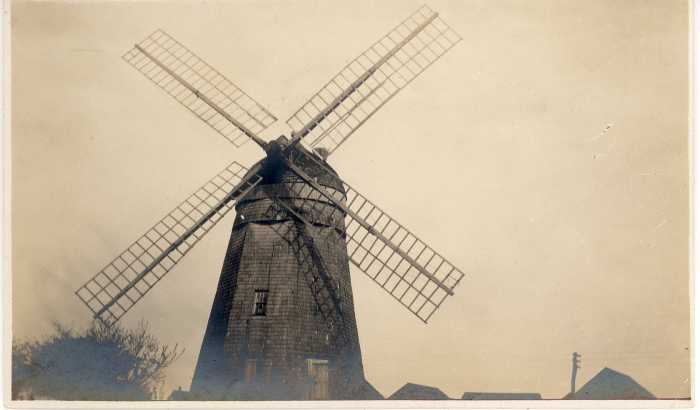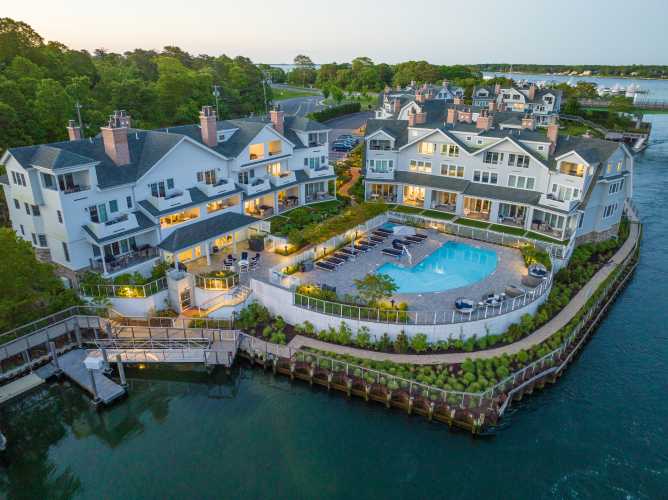Wishing the Boy Scouts of America a Happy 100th Birthday
Trustworthy, loyal, helpful, friendly, courteous, kind, obedient, cheerful, thrifty, brave, clean and reverent is, of course, the Boy Scouts Code of Honor. Not a small thing to aspire to, for any number of reasons, not least of which every Boy Scout I knew could tie a great knot — a useful thing to know, especially for someone like me who has trouble knotting my shoelaces properly.
No, I was never a Scout. My loss, believe me, not theirs. Looking back at it now, I really do feel like I missed something important in my life. Perhaps that’s why as mayor of the Village of Floral Park, I attended every Eagle Scout ceremony, being immensely drawn to its high ideals of patriotism, self-reliance and old-fashioned adventure that captured the pioneer spirit of this nation.
This year, 2010, marks the Centennial of the Boy Scouts of America. There were predecessors, the “Sons of Daniel Boone” and the “Woodcraft Indians” that the so-called Progressive era bred but none that had the staying power of the Boy Scouts. In the early years of the 20th century, America was rapidly being transformed from an agrarian society to an urban one. Would those values that made America great still prevail in the new citified milieu?
These were serious concerns and serious efforts were made by serious people to strengthen the next generation of Americans for the challenges ahead and Scouting was one way to do it. There was no more enthusiastic booster of America’s youth and Scouting than Theodore Roosevelt, the biggest Boy Scout of them all. With a creed championing character development, citizenship training and personal fitness the Scouts radiated a wide and lasting appeal.
With this kind of training and can-do attitude, it’s no surprise that Scouts are always disproportionately represented in those who volunteer to help victims during Katrina and other world-wide disasters. Over two-thirds of all astronauts were Scouts and 11 of the men who walked on the Moon had been Boy Scouts. When novelist Tom Wolfe wrote his best seller, The Right Stuff, regarding the astronauts in the space program, he knew it was a great American story that had its foundation in the Scouting program. No wonder Norman Rockwell, the great illustrator of American values, celebrated the Scouts in so many of his artistic gems. When you are so frequently the subject of Mr. Rockwell’s brush and easel you are as American as apple pie and motherhood.
Like any great organization, the B.S.A. has its critics, who characterize its membership requirements as being unfair and discriminatory and have legally pursued their grievances in various state and federal courts with little success. But having failed to topple the Boy Scouts from their sacrosanct perch, some have chosen to write off the Scouts as a narrow-minded assemblage of partisans more willing to shut doors than open them. But how can that be a fair and just characterization when there are more than 100,000 physically or mentally disabled Scouts throughout the country reveling in all the wonderful activities Scouting has to offer.
The people in our lives, beginning with our parents but extending to our environment, exert an enormous gravitational pull on what we believe and how we grow. Institutions that reflect and support community and tradition are the cornerstones of our civilization. Human beings are at their most noble and selfless, not in their solitary pursuits but when they see themselves as part of the greater community. Jacques Rousseau’s sanitized tale of “noble savages” isolated from civilization and who live peaceful existences is pure mythology. The truth is that the very transmission of our ideals, form of government and traditions is dependent upon the most familiar of our institutions: families, churches, schools, fraternities and organizations.
The veneer of civilization is thin and the darker motives of the human heart are thwarted (more than we usually admit) by the powerful constraints of tradition and habit. In high school, I was not alone in being disturbed by William Golding’s Lord of the Flies depicting how well-educated children can so precipitously descend into bloodlust barbarism where they attack, torture and murder one another without a pang of conscience.
Perhaps we shouldn’t be so shocked. There are an estimated 785,000 gang members in the United States, mostly in our inner cities but also here on Long Island and other suburban areas. These gangs, in twisted fashion, offer its members the same things afforded by Scouting such as status, acceptance, self-esteem and a sense of belonging. They have their own rituals and initiation rights; and just like the Scouts many of these gangs have a distinctive dress. But instead of wearing a regulation uniform like the Scouts, their accoutrements are tattoos, bandannas, jewelry, loud colors, etc.
I always thought the best way to defeat gangs is to fight them on their own terms. The difference between the Scouts and gangs is merely one of values. I don’t say that lightly because values can be, and often are, decisive in shaping one’s destiny. It is also, however, important to provide an alternative to the gangland culture to which so many of our young people are destructively attracted.
It’s not so far-fetched. Let me tell you, the Boy Scouts have dealt with tougher crowds than the Bloods and the Crips. The celebrated American historian, Stephen Ambrose, author of Band of Brothers, put it all in perspective when he noted that when you got right down to it WWII came down to the Boy Scouts of America defeating “Hitler’s Youth,” an offshoot, no doubt, of the line that the Battle of Waterloo was won on the playing fields of Eton. There is merit in both of these observations.
I seriously believe that the Boy Scouts, if sold to these troubled kids in the right way, can make a real dent in the gangland culture. For all that Scouting has meant to the youth of this nation and all that it can be to so many more. let me wish the Boy Scouts of America a very happy 100th birthday and many, many more.


































